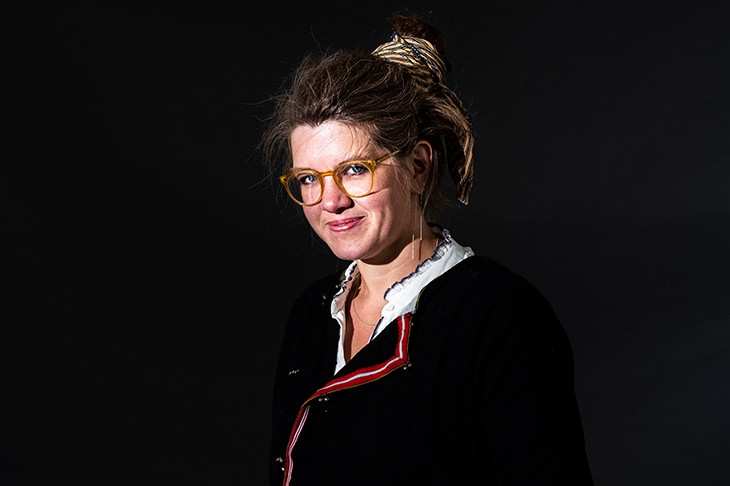In 2009 Margaret Atwood published The Year of the Flood, set in the aftermath of a waterless flood, a flu-like pandemic that almost extinguishes human life. Twelve years ago such apocalyptic visions still felt speculative. Today, Jessie Greengrass’s new novel, The High House, imagining a near future in which civilisation is engulfed by an actual watery flood, does not. It feels chillingly inevitable.
The author of a prize-winning short story collection and Sight, a novel shortlisted for the Women’s Prize for Fiction 2018, Greengrass grew up partly in Devon and lives in Berwick-upon-Tweed. Her affinity with the countryside permeates this book, in which nature is both sublime and implacable.
It begins near the end: Caro, her little half-brother Pauly, and Sally are ‘the last ones, waiting’, in a house in Suffolk equipped for self-sufficiency by Pauly’s mother Francesca, an environmental activist who has been trying to prepare an unheeding world for apocalypse. This coastal hideaway is her legacy, a totem of maternal love, filled with her son’s protectors — Caro, along with Grandy and his grand-daughter Sally, locals with rural knowledge.
Elsewhere, rising water has reclaimed the land ‘people had thought they owned’. By turns, in brief, controlled sub-chapters, Caro and Sally narrate the events leading to this point — ecological decline, extreme weather, mass death and displacement — with interjections from Pauly, the axis around whom the household orbits.
The novel’s verisimilitude is striking; like Kazuo Ishiguro’s speculative visions, it’s done with restraint and propelled by finely observed dynamics between characters who grapple with survivors’ guilt and ungraspable truths, wondering why they cling to a decaying life of grinding subsistence.
Described in measured, meditative prose, humanity’s paralysis is painful to read: the myopic faith in the status quo, the fearful waiting game.








Comments
Join the debate for just £1 a month
Be part of the conversation with other Spectator readers by getting your first three months for £3.
UNLOCK ACCESS Just £1 a monthAlready a subscriber? Log in